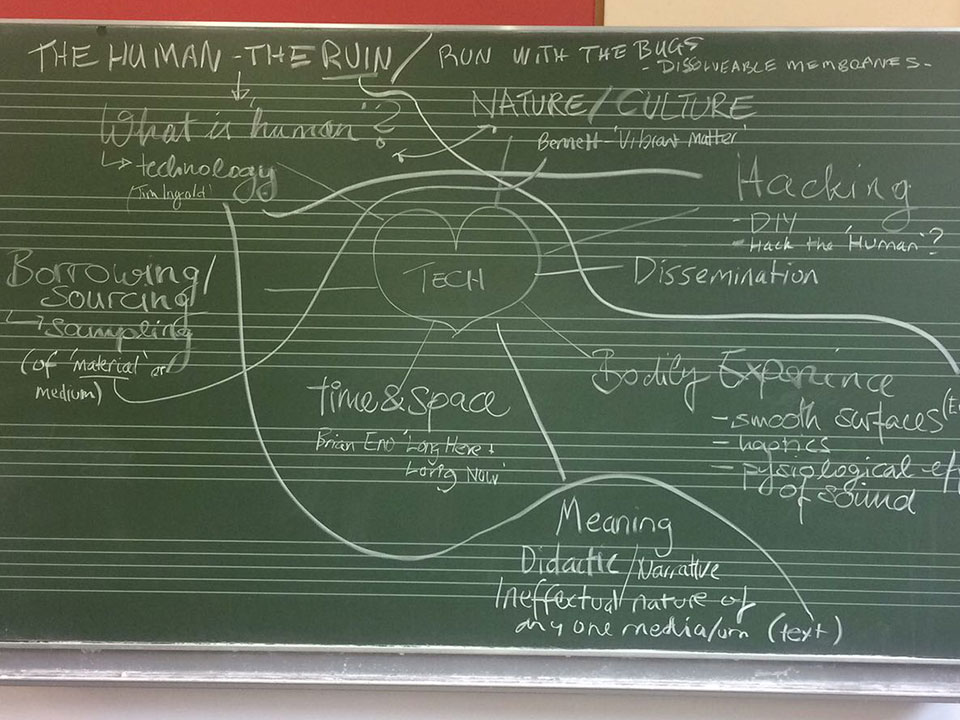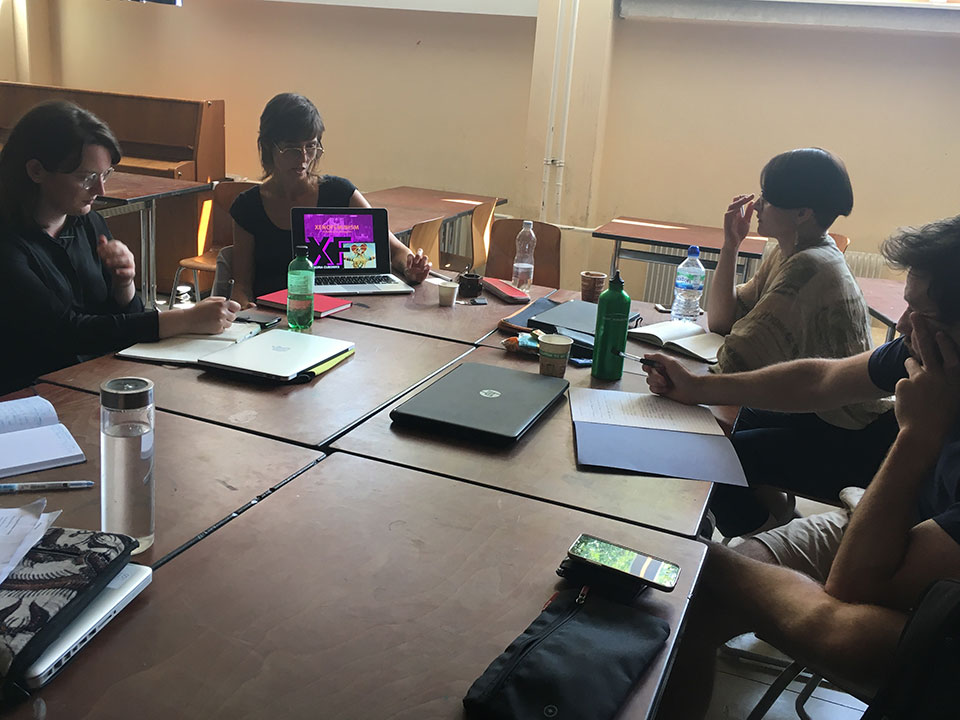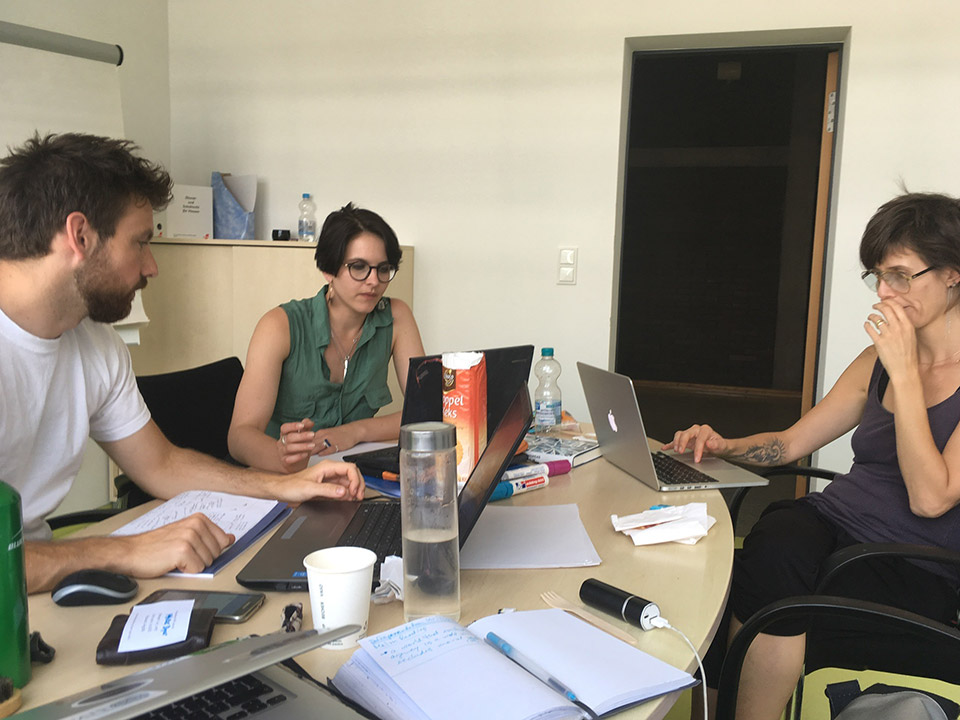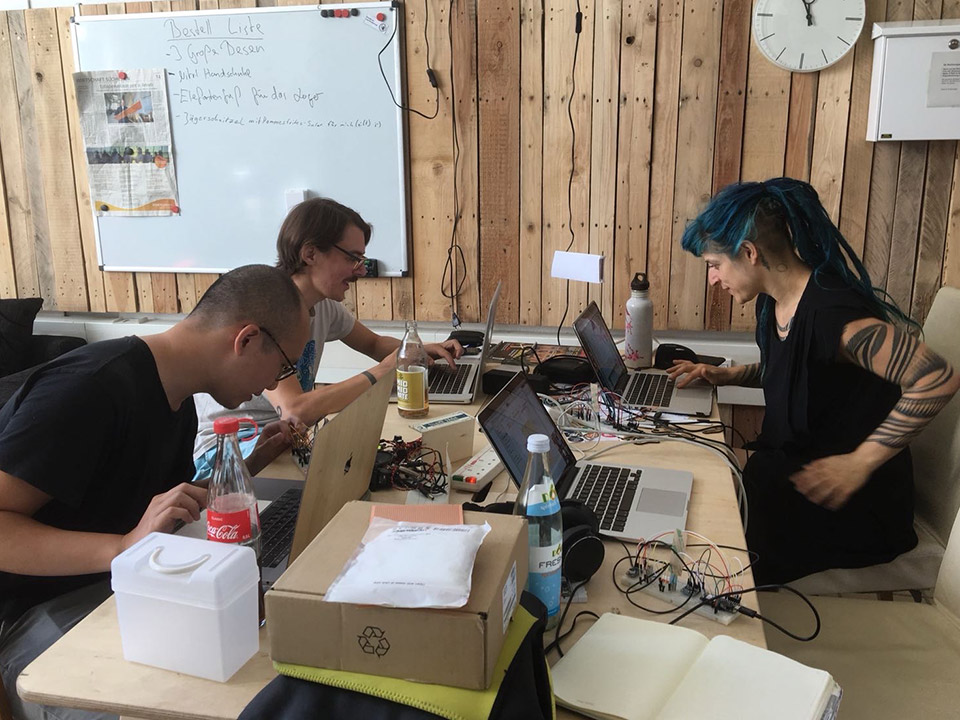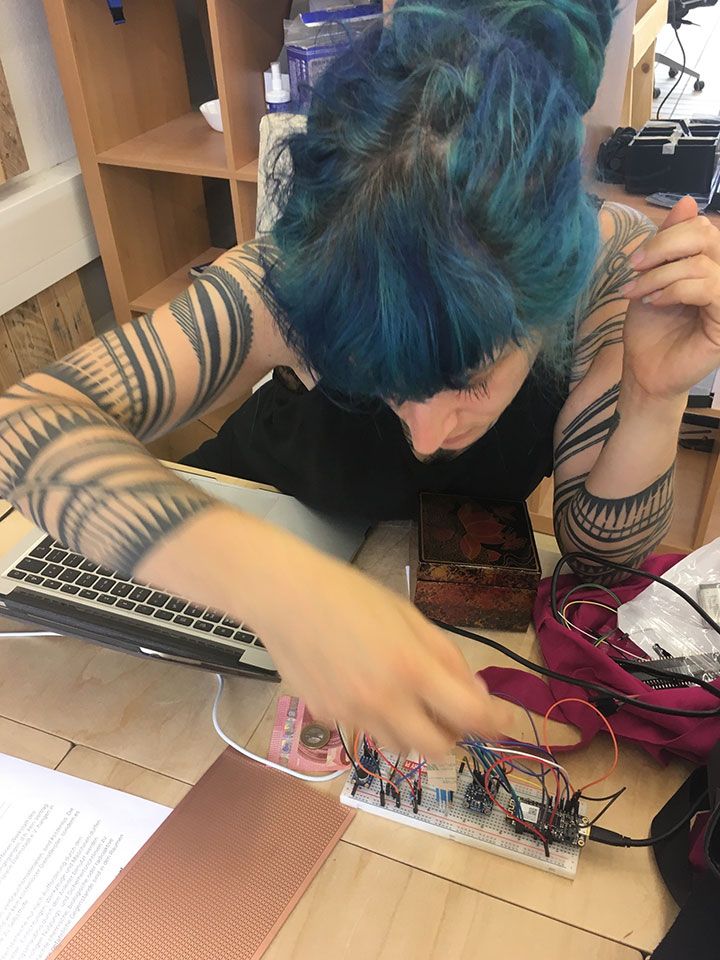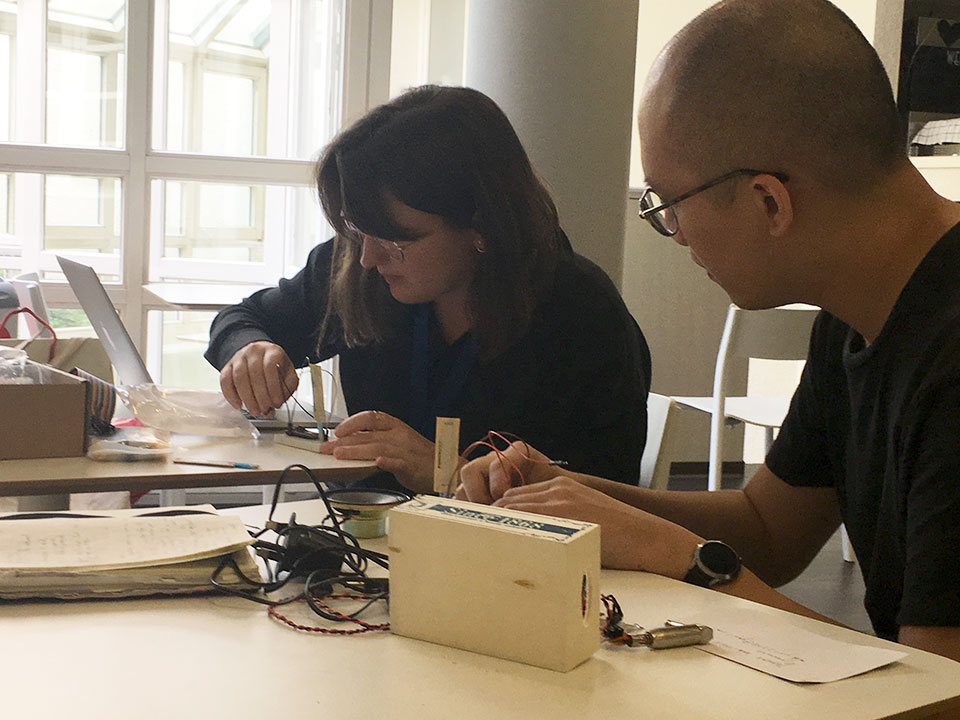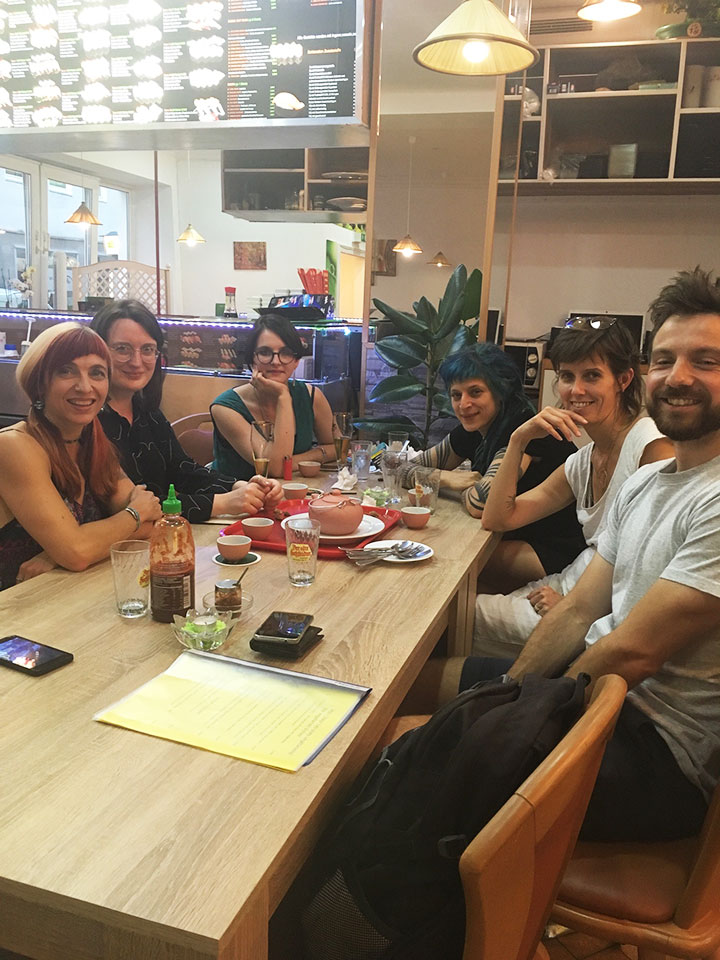> Defragmentation
Curating Contemporary Music
The New and Contemporary Music research project called Defragmentation was concerned with transforming the new music genre, and by extension new music composition, performance and festivals. Defragmentation had four topic areas and four advisory teams focussed on: curation, technology, decolonisation, gender and diversity in the New Music context.
> Videos
> Timeline
January 2017 – March 2019
> Collaborators
- Dr. Joanna Armitage – Maker
- Dr. Freida Abtan – Maker
- Diann Bauer – Writer
- Dr. Camille Baker – Technology Adviser
- Klara Kofen – Participant
- Mark Dyer – Participant
> Abstract
The project set up like a thinktank, was an attempt to begin a new discussion about the fragmented New Music scene, disconnected from a social discourse and supposedly marginalised, in four central thematic areas is the focus of the present project.Starting from the principle of curation, adopted from the visual arts and increasingly used in musical matters, three large, at first seemingly music-unrelated thematic areas examined in terms of their applicability and their contact with the music of our time: gender/diversity, technology, and decolonisation.
Here the term “defragmentation” from the field of information technology can serve as an apt metaphor. In IT, defragmentation is defined as: “a process that reduces the amount of fragmentation […] by physically organizing the contents of the mass storage device used to store files into the smallest number of contiguous regions (fragments)” (Wikipedia article “Defragmentation”), and thus its application to the field of contemporary music expresses the aim of working out, in detail, a central narrative thread amid the highly divergent discourses and practices. In this sense, the goal is for a deeper understanding of curating practices and a far-reaching merging of these focal points – gender/diversity, technology and decolonisation – to help develop a more coherent picture of current questions faced by New Music.
The idea for Defragmentation developed from a basic sense of unease. The feeling that contemporary music suffers from serious flaws, and that existing festivals not only fail to correct these flaws, but also large neglect to incorporate social debates and challenges into their programming concerns, stimulated numerous conversations involving the directors of four festivals: the Donaueschingen Festival (Björn Gottstein, since 2015), the Darmstadt International Summer Course (Thomas Schäfer, since 2010), MaerzMusik – Festival for Contemporary Issues, Berlin (Berno Odo Polzer, since 2015), and the Ultima Oslo Contemporary Music Festival (Lars Petter Hagen, since 2012). In these conversations, it became clear that a reorientation is required in New Music, and that the necessary foundations for such a reorientation need to be laid. These foundations can now be determined within the framework of a specific discourse which will involve curators, artists and scholars.
> Partners
- German Federal Cultural Foundation
- International Music Institute Darmstadt (IMD)
- Donaueschinger Musiktage
- MaerzMusik – Festival for Time Issues
- Ultima Festival & Academy Oslo
> Budget / Funding
- £5,000 from Partners (for Technology Advisor Role)
- £5,000 from Partners (for Workshop Organisation)
> Outcomes / Impact
In order to overlap with the Gender and Diversity group, and women in technology is an underrepresented group in the New Music genre, I felt it important to bring in strong innovative women from music and technology to explore technology issues from a feminist perspective.
I brought this approach to the Darmstadt Summer School 2018 context and the Defragmentation symposium in particular as part of it, to expose the summer students to arts and technology activities, as a unique challenge and experiment, to see what the outcome might be.
Video artist Diann Bauer to lead the Booksprint / writer’s group and she was one of the women in the Laboria Cubonics Collective who spawned the Xenofeminism project. Electronic composers Joanne Armitage and Freida Abtan lead the Music Technology hacking workshops.
Other outcomes include: Videos of the workshops and symposium talks, a self-published book, a book chapter authored as a result of the booksprints, and a unique instrument created by Dr. Abtan during the making programme.
